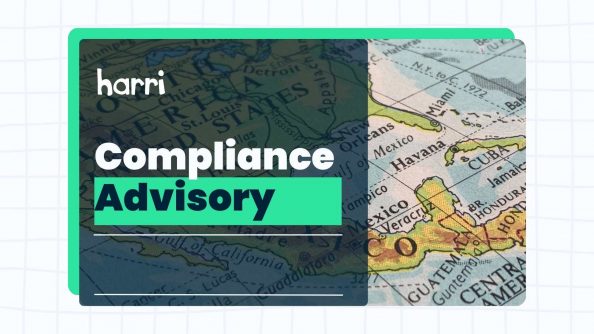Essential Elements of Successful Compliance Management Programs

- By Harri Insider Team | September 5, 2024
Please note this blog is intended for summary purposes only. Any guidance or materials provided do not constitute legal advice and cannot be substituted for the advice of legal counsel.
Compliance in hospitality isn’t a ‘nice to have’ – non-compliance with labor laws can result in hefty fines, brand reputation damage, and an off-putting impression for potential new recruits. Your greatest ally in this more regulated and rule-filled environment is a well-designed compliance program.
In this blog, we will have a look at the essential elements that can transform your approach to compliance so that it becomes a dynamic and strategic aspect of your business activity rather than a mechanical procedure of checking boxes.
Establishing Clear Policies and Procedures
The Importance of Well-Defined Policies and Documentation
It can’t be overstated – compliance is one of the most, if not the most, important things to take into consideration in your business operations. Using technology that helps build employee schedules in accordance with localized or federal labor laws, such as Fair Workweek, can support your efforts to stay compliant with legal requirements. Having a compliance plan means everyone understands what’s expected of them and knows how to toe the line.
Effective Training and Education
Methods to Ensure Ongoing Education and Compliance
In order to be truly effective, training has to be a continual process. Every day is a school day, and the best employees – and managers – understand that there is always room for improvement and growth in their roles. Having a culture of continuous learning has many benefits – compliance rules can change frequently and quickly, so you need to keep up; also, it keeps compliance top of mind for the team.
Feedback is another useful tool – what does your team find most useful in training? What are they struggling with? Ensure you are listening to observations from the team to get the most out of them – there is no point in giving them compliance training that makes no sense and sets them up for failure.

Regular Monitoring and Auditing
Techniques for Routine Compliance Checks
Random audits can be scary for a business that doesn’t have its affairs in order – but by using a scheduling system designed to support compliance, you can reduce the risk of fines and be better prepared for external audits.
It is also important to maintain checks internally to set your business up for success. Technology that provides non-compliance alerts can be a valuable tool for monitoring your team’s operations, helping you identify areas that may require further training and guidance.
Continuous Improvement and Risk Assessment
Adapting and Evolving the Compliance Program Over Time
Your program for compliance needs to evolve as the laws change, which means regularly assessing your compliance mechanisms to identify and address potential gaps through internal audits and regular training.
Staying informed about changing legal requirements in hospitality is essential – whether you have an in-house compliance expert, regularly check the Department of Labor website, or use your workforce management system, such as Harri.
Compliance: A Cornerstone of Hospitality Success
A strong compliance program is vital for the success of hospitality businesses. By investing time and resources in compliance, you can:
- Minimize risk: Protect your company from legal and financial consequences.
- Enhance reputation: Build trust and credibility within your community.
- Foster a culture of integrity: Create a positive and ethical work environment.
Don’t neglect compliance. A proactive approach can prevent damaging fines and negative press, showing your employees that you take compliance, and their well-being, seriously.





















